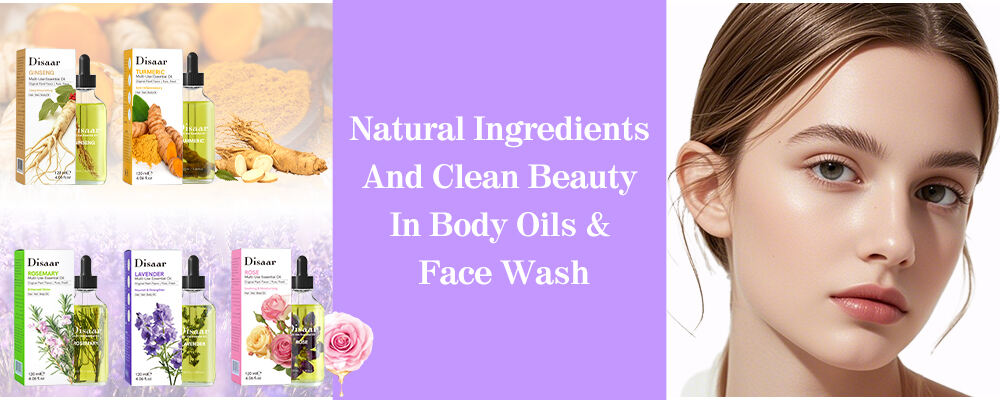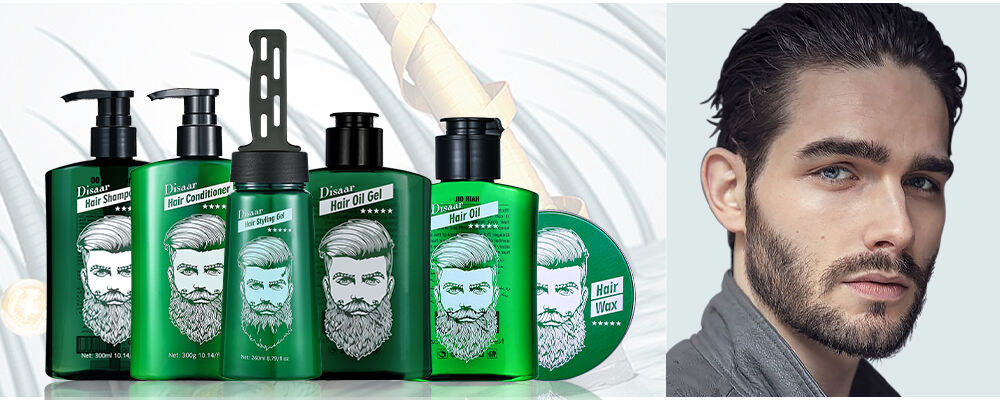April marks the peak season for the beauty industry, a time when the importance of OEM/ODM business, such as Livepro Beauty, becomes ever more crucial in the B2B field. By analyzing the business operations of Livepro Beauty, we can provide valuable references and cooperation ideas for professionals in the industry.
The increasing consumer preference for sustainable beauty products is a major growth driver in the industry. According to a study by McKinsey, nearly 70% of consumers are willing to pay more for products that are sustainable, reflecting a shift towards eco-friendly ingredients and practices. This trend is pushing companies to adopt sustainable models, which in turn promotes partnerships focused on creating eco-conscious solutions in beauty. The emphasis on sustainability also allows companies to leverage their commitment to environmental responsibility as a unique selling proposition in B2B partnerships.
Furthermore, the Asia-Pacific (APAC) market presents significant growth potential, expected to account for over 40% of the global beauty market by 2025. The robust demand in countries like China, Japan, and Korea, combined with a burgeoning interest in natural and organic beauty products, underscores this expansion. The region's flourishing online sales, set to comprise 18.8% of beauty and personal care market revenue by 2024, highlight opportunities for digital and physical retail innovations. Companies looking to penetrate the APAC market can benefit from B2B partnerships that cater to the region's specific beauty preferences, positioning themselves for success by focusing on sustainable and natural product innovations.
OEM and ODM services are pivotal in accelerating skincare innovation, enabling companies to quickly bring new products to market with reduced costs. These services allow businesses to focus on their core competencies while leaving the production and design aspects to specialists. This model has proven successful by delivering custom formulations tailored to specific market needs, providing competitive advantages like faster time-to-market and cost efficiencies. Partnerships with OEM/ODM providers enable brands to swiftly adapt to evolving consumer demands, making it easier to introduce niche products like personalized skincare offerings.
For instance, innovative skincare products that emerged from successful B2B partnerships include unique formulations that cater to specific skincare needs. Companies can offer customization and tailored solutions, tapping into the rising demand for personalized skincare. Furthermore, collaborations between beauty brands and OEM/ODM service providers promote innovation in natural and eco-friendly products, meeting the ever-growing consumer demand for clean beauty. Emphasizing this approach can attract businesses looking to diversify their portfolio with minimal financial risk and maximal operational efficiency.
To sum up, the drive for sustainability and the expansion in the Asia-Pacific region are propelling the beauty B2B sector forward. Meanwhile, leveraging OEM and ODM services is ensuring rapid innovation and the fulfillment of personalized skincare needs. Both aspects are crucial for companies eager to thrive in the emerging global beauty landscape.
Livepro Beauty has established itself as a leader in R&D for skincare formulations, with over two decades of innovation and reliability. Since its inception in 2003, the company has consistently focused on creating cutting-edge skincare solutions, earning recognition and certifications like the United States GMPC and EU ISO22716 Cosmetics Good Practice Certification. Notable breakthroughs, such as advanced hydrating serums and eco-friendly formulations, have emerged from its robust research endeavors, finding wide real-world applications across various markets. This extensive experience not only positions Livepro as a pivotal player in the OEM/ODM sector but also enables it to cater to diverse client needs by providing tailored and innovative cosmetic solutions.
Livepro Beauty has developed an impressive global footprint, effectively leveraging its distribution and logistics capabilities to serve a clientele spread across more than 100 countries. With an annual production capacity exceeding 50 million units, the company offers a strategic advantage to B2B partners looking to penetrate new markets efficiently. For instance, Livepro's collaboration with a prominent Asian retailer enabled rapid market expansion and significant brand recognition due to its vast production capabilities and reliable supply chain. This global reach not only demonstrates Livepro's operational effectiveness but also highlights its ability to facilitate robust market entry strategies for its partners.

The demand for clean beauty products in categories such as body oils and face wash is witnessing an unprecedented surge. As consumers become more conscious of the ingredients in their skincare products, the clean beauty market is projected to grow by 10% annually. This trend is reshaping B2B strategies, compelling companies to source natural ingredients sustainably. By investing in sustainable practices and partnerships, businesses can not only cater to this demand but also reinforce their brand reputation. Successful examples include brands that have collaborated effectively with suppliers to leverage natural ingredient formulations, showcasing their commitment to both safety and sustainability. This approach has proven lucrative, driving higher engagement and trust among eco-conscious consumers.

The male grooming market is experiencing a robust renewal, especially in Hair Care products. For instance, the Men's Hair Wax (150g) and the Men's Hair Oil (100ml) are both gaining significant traction. The hair wax, formulated with shea butter and Vitamin E, offers rapid styling, fluffy and moisturizing effects, long-lasting hold, and a refreshing, non-sticky finish. These features make it an ideal choice for men seeking high-quality hair care solutions. Meanwhile, the hair oil, which contains castor seed oil and squalane, provides deep nourishment, repairs damaged hair, strengthens hair strands, and leaves hair glossy and smooth.
Brands have been innovative, introducing products specifically designed for male consumers, catering to their unique grooming needs and preferences. The men's care series, for instance, stands out in the market due to its focus on providing effective and enjoyable grooming experiences. B2B partners have the opportunity to capitalize on this trend by developing specialized products and marketing strategies tailored for the male demographic.
Artificial Intelligence (AI) is increasingly becoming a game-changer in the personalized skincare sector. Predictions suggest that AI-driven solutions will soon dominate the beauty tech landscape, transforming how products are formulated, recommended, and used. Companies can utilize AI to refine their B2B offerings, enhancing product recommendations and personalization opportunities. By leveraging advanced analytics, businesses can provide tailored skincare solutions that cater to individual needs. Successful AI-driven models have not only improved customer engagement and satisfaction but also optimized operational efficiencies. This technology offers beauty brands a strategic advantage to differentiate themselves in a highly competitive market by delivering innovative and personalized consumer experiences.
Cosmoprof Asia stands as a prominent platform for networking amongst industry professionals, emphasizing its crucial role in fostering new B2B partnerships, particularly within OEM sectors. The event, held in Hong Kong, attracts beauty industry experts who are keen to tap into emerging opportunities in the Asia-Pacific region. It offers unparalleled networking possibilities through its dual-format of Cosmoprof Asia and Cosmopack Asia, encouraging collaborations that lead to successful partnerships. For businesses looking to maximize opportunities at such trade events, effective networking requires preparation, such as setting clear goals and scheduling meetings in advance, making personal introductions, and actively participating in seminars and workshops to stay informed about industry trends.
Certifications like GMPC and ISO22716 play a pivotal role in establishing trust and credibility within the beauty B2B sector. These certifications are recognized as benchmarks for quality and safety in cosmetic production processes. Industry evidence suggests that companies holding these certifications enjoy increased partnership opportunities due to the assurance they provide to potential clients. Livepro distinguishes itself by adhering to these standards, positioning itself as a reliable partner that potential clients can trust. By committing to these certifications, Livepro demonstrates its dedication to maintaining high standards in manufacturing, ultimately enhancing its reputation and creating numerous windows for collaboration with international partners.
Sustainable packaging is playing an indispensable role in shaping modern beauty B2B strategies, driven by a consumer shift toward eco-conscious brands. Evidence suggests that customers prefer brands that align with their environmentally friendly values, prompting companies to innovate with biodegradable materials and refillable containers. This innovation not only caters to environmental demands but also offers a significant competitive advantage by fostering stronger partnerships and attracting environmentally-conscious consumers.Companies that integrate sustainable packaging solutions can differentiate themselves in the market, resulting in strengthened relationships and expanded business opportunities in the beauty industry.